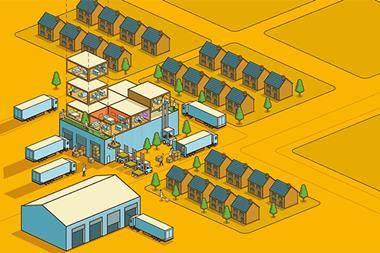Ian Mulheirn is quite right with his comment piece explaining why boosting supply won’t solve the housing crisis. It’s great to see at long last someone with common sense acknowledging there isn’t a housing crisis, it is a credit crisis.

By Nick Knight, managing director at Eco Cycle
Two points, though. Firstly, the increase in stock above the creation of households is partly due to demographics. One reason households are getting smaller appears to be the prevalence of divorce; so perhaps the government would be better looking at how to make happy families again?
Secondly, there are two elements of housing supply and the majority don’t factor this in. There is net addition to the stock, which most are inadvertently talking about, and then there’s the supply of properties on the market.
And it’s the availability of supply on the market that has a far greater effect on house prices, particularly as it can turn on a sixpence, while addition to stock suffers from the development delivery time lag.
It is this time lag that the planning system is receiving flak for, as the process appears to take too long.

Yet how many schemes are actually flatly refused?
Where developers put forward schemes compliant with local plans, there shouldn’t be such friction. However, government is pushing for ever-greater supply, which is naturally stretching planning authorities – the consequence will be apparent as design and quality are not properly scrutinised.
If the commotion about the housing crisis is simply high prices (affordability), then a perfect storm could be brewing as near unprecedented levels of stock are being pushed through when population growth appears to have stagnated and interest rates will at some point rise.
However, the world is awash with equity and the UK will always be regarded as a relative safe haven for parking it.





























No comments yet